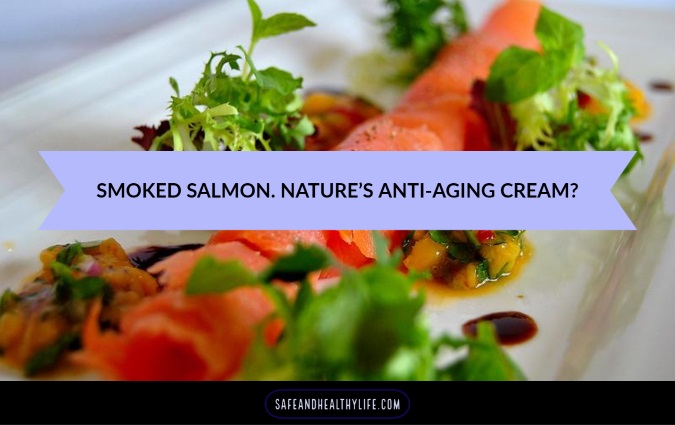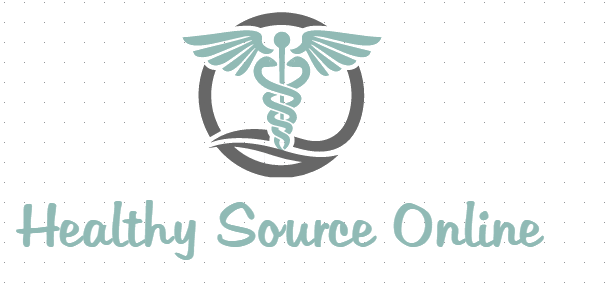[ad_1]

Salmon is known for a host of health benefits. It’s rich in heart-healthy Omega 3 fatty acids. It’s low in calories and has tonnes of nutrients too. That includes vitamins A, E which boost antioxidants, and vitamins B12, which support red blood cell creation and nerve systems.
And as well as these (smoked salmon, in particular, is a great source of omega-3 fatty acids) salmon has been shown to:
- Lower your risk of cardiovascular disease
- Improve the health of your brain and prevent cognitive deterioration
- Reduce your anxiety levels
- Maintain a healthy weight
- Fight cell inflammation
Eating salmon also provides you with loads of protein (25.2g per 100g), which is great for keeping your bones strong and keeping your muscles big. Protein also helps your body repair itself and heal better.
But salmon is also rich in an antioxidant called astaxanthin which is found to have an effect on your skin’s elasticity.
Not only that, but astaxanthin can help reduce the signs of aging (ok, that is subjective… ‘30 people we tested thought they looked younger!) and protect the skin against UV (UV is damaging to the skin and ages you faster than if you slip over next to the fountain of youth and knock the whole thing down a drain before the liquid has even touched your lips).
So, What is Astaxanthin?
You may have heard that flamingos are pink because they eat shrimps… and it’s partly down to carotenoids. Carotenoids are pigments that give things like pumpkins and carrots a striking orange color.
The yellow of daffodils and canaries is down to carotenoids. And the pink color of smoked salmon and unsmoked salmon comes from these two.
Astaxanthin is a red pigment that’s found naturally in freshwater microalgae and yeast fungus.
If the algae get stressed (by lack of nutrients for example, or too much sunshine) it creates astaxanthin. Animals who then eat the algae get that astaxanthin pigmentation color.
It’s worth noting here that the amount of astaxanthin found in each animal does depend to a degree on its diet and environment.
Astaxanthin and Healthy Aging
There have been various studies on astaxanthin, and the results generally show that astaxanthin improves your skin’s moisture content, elasticity and can smooth wrinkles.
For example, this 2012 study conducted by Fuji Chemical Co found that astaxanthin from the algae H. Pluvialis either applied or consumed can improve the skin condition in both men and women. It concludes:
“These results may suggest that astaxanthin derived from H. Pluvialis can improve skin condition in all layers such as corneocyte layer, epidermis, basal layer, and dermis by combining both oral supplementation and topical treatment and oral supplementation of astaxanthin can improve the skin condition is not only women but also men.”
Other Benefits of Salmon

Photo Credit: Unsplash
Heart Health
The omega-3 fatty acids found in oily fish like salmon can’t be produced by the body and must come from the diet. These fatty acids benefit heart health and help prevent heart disease.
Healthy Brain
Regularly eating fish seems to reduce brain deterioration caused by age and can help your memory too. Again, it’s the omega-3 fatty acids that are responsible.
Reduces Inflammation and Protects the Brain and Nervous System
Inflammation is thought to be a key element in a number of chronic diseases including diabetes and cancer and rheumatoid arthritis. Oily fish is shown to have a dampening effect on the markers that are associated with this inflammation.
Combined with the effects of the omega-3 fatty acids, the antioxidant properties of astaxanthin can also help protect your nervous system and brain.
Final Thoughts
All in all, these are great reasons to eat smoked salmon. Ok, you’d have to eat salmon daily to get the amounts needed, but it’s a case of every little help.
Combined with rich colored foods, like blueberries and tomatoes, eating oily fish – in particular salmon – can have a tremendous impact on your health.
About The Author:
Matt Lyle is a Content Marketing Executive at Revive.Digital. Matt has experience writing content for the purpose of marketing on behalf of B2B and B2C organisations ranging from legal services, insurance brokers, financial services, all the way to the music and entertainment industry. He conducts research and writes about an extensive number of topics. Matt aims to educate his readers through his creative writing by providing them with informative and valuable content. He seeks to simplify complex topics for general readers as well as writing technical content for the well-informed.
[ad_2]
Source link




